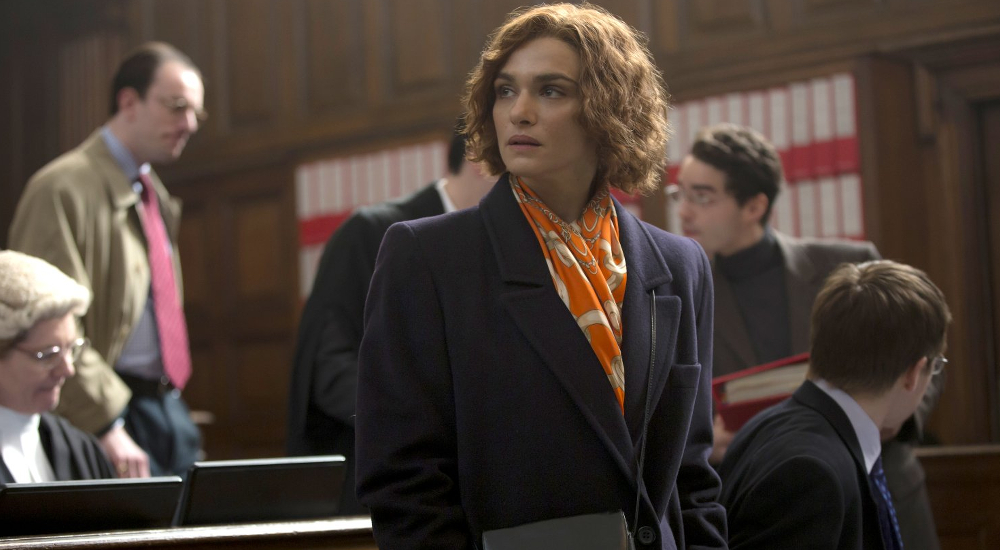“Where’s the proof?”
Based on the acclaimed book “History on Trial: My Day in Court with a Holocaust Denier,” Denial is a subtle, intense and thought provoking film that analyzes the world we live in and the way in which we prove history.
Centered around the horrors of Nazi Germany and the Auschwitz Concentration Camp, Mick Jackson’s courtroom drama recounts when Deborah Lipstadt got locked in a legal battle for historical truth against David Irving, a “historian” who accused her of libel when she proclaimed him a Holocaust denier.
Set in 1994 at Emory University, the film bears an even flow as we are introduced to Lipstadt (played by Academy Award winner Rachel Weisz) and the man on the opposite side of history, Timothy Spall. Given today’s political climate it doesn’t take long for a deep resentment for Spall’s Irving to creep in, setting the stage for a true David v. Goliath battle that will unearth a wealth of emotion as our lead team of lawyers find themselves struggling to prove that a marque moment in world history did in fact take place.
Well scripted dialogue and a slew of near flawless performances help to bring the heart and frustration to life. Weisz deserves credit for her ability to resonate irritation, while never crossing over to annoyance. Her ability to push the boundaries allows Lipstadt to resonate, refusing to fall into a cliché as she works to give those who suffered a voice.
Tom Wilkinson portrays one of the key lawyers in the case; his chemistry with Weisz is undeniable. Together they form a force, working the frame to sheer perfection as they build a trust and prove that regardless of life’s outer obstacles, sometimes you have to search and find the strength from within. As Lipstadt begins to let down her veil of separation, the audience follows suit, paving way to a breakthrough that has a resounding effect.
Though a majority of the film takes place within the court room and the lawyer’s war room, Jackson’s tone helps to build the world significance of the film’s case. Though many already know the outcome, the path in which we get there is anything but normal. Going as far as to use actual dialogue pulled from the court transcripts, Denial bears an unusual authenticity. Refusing to get caught up in the dramatics, emotions appear genuine and sincere. The theatrics, though present, are part of the story, helping to characterize Irving as he defends his suit and longs for government to justify his historical teachings.
As the case wears on and our impatience grows, you can’t help but question your own qualifications of history. I wasn’t a fan of the direction the case takes, especially when Irving opts to take the stand to defend his findings; though it does appear that Jackson kept pushing forward in honor of the case’s true happenings. That doesn’t make it right, it just makes it acceptable.
The history is fascinating, the characters courageous. As for the overall experience, Denial is a film I’m glad I’ve seen, but not one I’ll likely venture out to witness again. It wasn’t bad, I’d just rather not be reminded that historical events such as the Holocaust warrant defending.

